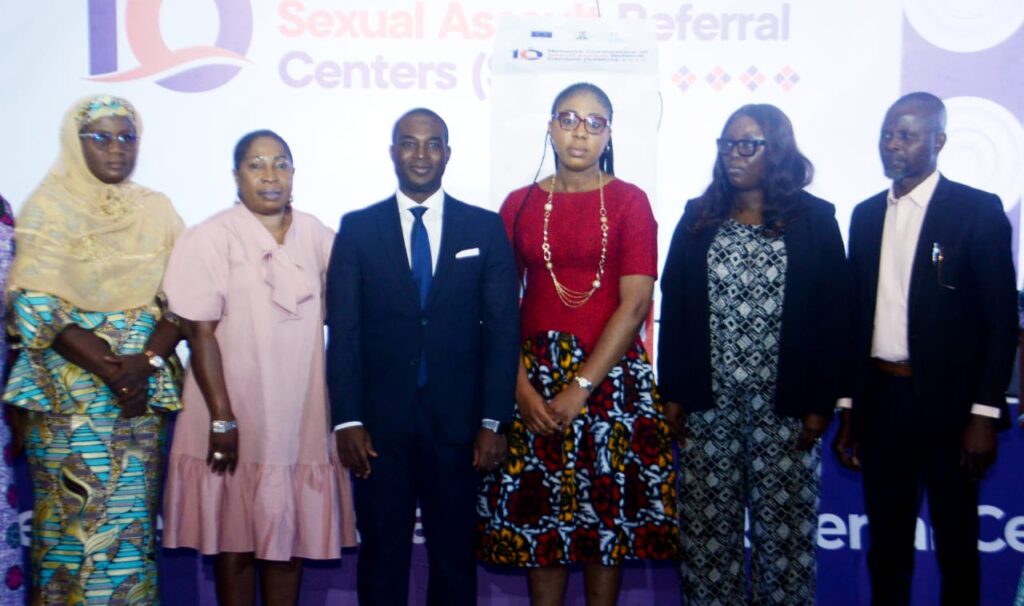The International Institute for Democracy and Electoral Assistance (International IDEA) has said there was a need to protect the increasing number of boys and men suffering from Sexual and Gender-Based Violence (SGBV).
This was as the international body stated that Nigeria cannot promote and achieve sustainable democracy and good governance without tackling the worrying issues of SGBV.
Director, Africa and West Asia Region, International IDEA, Dr. Roba Sharamo made the call at the ongoing 10th Network Conference of Sexual Assault Referral Centres (SARCs) organised by the Rule of Law and Anti-corruption (RoLAC) Programme, in collaboration with the Federal Ministry of Justice Sexual and Gender-based Violence Response Unit in Abuja.
While noting that women and girls were the most vulnerable and susceptible to SGBV and need to be supported and protected, he stressed that boys and men suffering from SGBV also need to be protected.
He said, “The conference is part of the activities to commemorate the 16 days of activism this year, and various studies we have done, including the women in political participation environment, produced by International IDEA this year, that shows that one of the key factors preventing women from getting into politics is the sexual and gender-based violence against women candidates, and also the issues of abuse on social media, that continues to undermine the effective participation of women in that regard.
“It is important to understand that as we try to promote democracy and good governance, we cannot do that in an environment that is hostile to more than half of the African population, which are women. It is, therefore, important that we look at the issues of SGBV.
“SGBV against women is not just a serious human rights issue and justice issue, the increasing number of boys and men who suffer from sexual and gender-based violence does not also diminish the focus on the same.”
Stating the importance of the Sexual Assault Referral Centres (SARCs), and their achievements since their establishment, Sharamo said, “The first SARC, the Mirabel Centre, was established in 2018, to offer a safe environment for survivors of sexual assault, and the data that we have shows that of the 47 SARCs established across 22 states, 51,127 survivors have been assisted through the various centres since 2013.
“With more centres being established, the conference of the Network of SARCs since 2016, continues to look at all the achievements that we continue to make.”
Deputy Ambassador, European Union Delegation to Nigeria and ECOWAS, Zissimos Vergos noted that protection ensures safeguarding the immediate wellbeing of survivors.
“The EU supports the creation of an environment where women and children are not only encouraged but also empowered to break the silence.
“The EU’s commitment to addressing these issues, promoting gender equality, and strengthening support systems, underscores the determination to ensure that every survivor’s voice is heard and respected.”
Vergos, while stating that access to justice and care for survivors of SGBV must remain a top priority, decried the low number of cases of SGBV that were prosecuted, compared to the number of survivors.
“We like to express the EU’s appreciation to the Nigerian government represented by the Ministry of Women Affairs and Justice, for the strong partnership demonstrated. We will continue to work side-by-side, and always guided by Nigerian policies and under Nigerian leadership, moving towards a more gender-sensitive society.
“The EU remains committed to the course of the fight against SGBV, which remains one of the pillars for rebuilding humanity in the 21st century,” he said.
The Minister of Women Affairs, Imaan Sulaiman-Ibrahim stressed that the SGBV campaign this year would afford the government, development partners, civil society organisations, and the private sector the opportunity to accelerate progress towards ending violence against women and girls.
Represented by the Director of Women Development of the ministry, Mrs Friya Bulus, she said, “The campaign this year is to ensure sustained advocacy, raise awareness about gender-based violence, despite previous efforts made, and mobilise more stakeholders to take action against gender-based violence, and to provide support services to gender-based survivors.”
Attorney General of the Federation and Minister of Justice, Lateef Olasunkanmi Fagbemi explained that the persistence of SGBV in Nigeria remains one of the country’s most stressful challenges requiring not just its attention but concerted action.
Represented by the Director, HAGF, Bola Odugbesan (Esq.) he said, “Over the past years, we have made significant strides in our response to SGBV. Let me be clear, these challenges, while significant, are not insurmountable. Based on our experiences and recommendations from our frontline staff, we are implementing several strategic interventions.”















